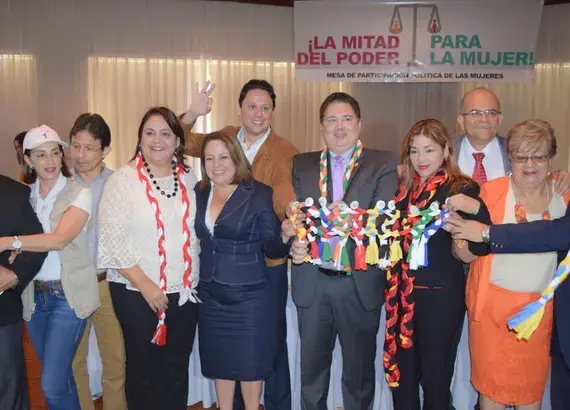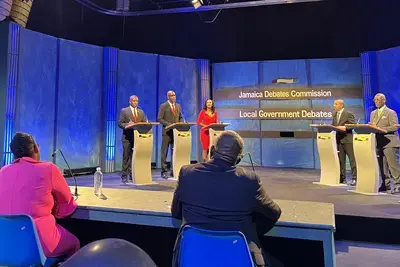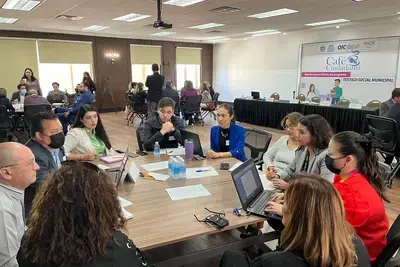
Success Story
Honduran Political Party Leaders Send Unified Message for Women’s Political Participation
“This battle will liberate us; we want to be involved in the decision making process. Women will not continue to be used as fillers,” declared Socorro Torres, coordinator of the Honduras Interparty Women’s Network (Red de Mujeres Interpartidarias de Honduras, or the Network). Torres’s comments were in response to the historic ratification of a pact between members of Honduras’s leading political parties, affirming women’s equality in political participation.
On October, 20, 2016, party leaders and aspiring presidential candidates from seven of Honduras’s ten political parties met in the Honduran capital of Tegucigalpa to ratify the “Political Parity and Alternation Pact” (Pacto Político por la Paridad y la Alternancia). The pact commits aspiring presidential candidates to push their parties to place women in top positions of party lists, ensuring the application of the principle of parity (50 percent women and 50 percent men on party lists) and mechanisms for alteration (rotating between female and male candidates on the ballot). Alternation allows women and men to have an equal chance of being seen on the ballot as compared to ballots that list male candidates first.
This battle will liberate us; we want to be involved in the decision making process. Women will not continue to be used as fillers - Socorro Torres, coordinator of the Honduras Interparty Women’s Network
The pact signing was the culmination of a campaign conducted by NDI partner Honduras Interparty Women’s Network (Red de Mujeres Interpartidarias de Honduras), a group that brings together female political party leaders across ideologies to develop policies that promote and defend women’s political participation. The campaign, which was called “The Pilgrimage of the Braid” (La Peregrinación de la Trenza), sought to build public pressure on the heads of political movements and aspiring presidential candidates to sign the pact and openly commit to upholding women’s political rights. During the pact signing ceremony, each candidate received a symbolic braid (trenza) with their respective party colors and held the collective braid to emphasize the parties’ shared commitment.
“We want to exercise democracy when we participate on equal terms,” agreed Cinthya García member of the Interparty Women’s Network.
The Honduras Interparty Women’s Network has been advocating on behalf of women for many years. Previous to the pact, in 2012 the network successfully advocated for the reform of Article 105 of the Election and Political Organizations Law (Ley Electoral y de las Organizaciones Políticas, LEOP), guaranteeing the principle of gender parity and mechanisms for alternance.
However, on September 9, 2016, the Supreme Electoral Tribunal (Tribunal Supremo Electoral, TSE), which is the governing authority in the enforcement of LEOP, issued a controversial regulation that the network said contradicts the spirit of the law. The regulation upholds parity, but weakens the alternation clause by only requiring political parties to begin alternating between female and male candidates starting at the third, fourth or fifth position on the ballot, depending on the number of deputies per department. Georgina Sierra, legal representative for the network, clarified that “with the new regulation we are barred from all institutional guarantees and the probability that a woman is elected is almost null.”
The pact signing ceremony was organized by Honduras Interparty Women’s network with the support of NDI, the Netherlands Institute for Multiparty Democracy (NIMD), the United Nations Development Programme (UNDP) and United Nations Entity for Gender Equality and the Empowerment of Women (UN Women).
NDI is working with a multi-partisan Women’s Political Participation Working Group to create more equitable conditions for candidates aspiring to run for public office through a cross-party gender agenda supporting women’s political participation, reducing violence against women, promoting women’s economic empowerment and building gender sensitive budgets. The Women’s Political Participation Working Group’s collective actions have garnered the support of feminist movements, rural women leaders, micro entrepreneurs, LGBTI activists, as well as international donor representatives.
NDI’s work with political parties in Honduras to advance gender equality policies and women’s political leadership ahead of the 2017 elections is conducted with support from the National Endowment for Democracy.



